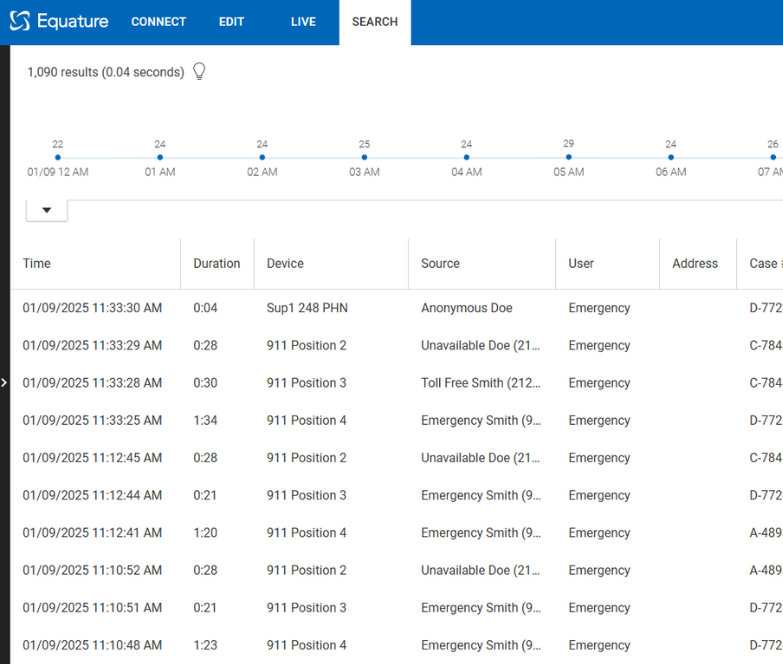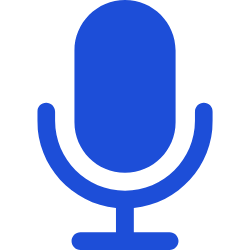Take a Deeper Dive into Agency Benefits
Use our full-featured savings calculator to take a deeper dive into how much switching to Equature could save your agency.
Equature's platform helps public safety agencies and commercial organizations gather, analyze, and act on critical communications and video data to enhance emergency response, improve security, and optimize performance.
Schedule a DemoCapture and store all critical communications with high-quality recording and secure archival capabilities.
Learn MoreTransform recorded communications into actionable insights using advanced AI and machine learning analysis.
Learn MoreConnect to any IP camera and automatically detect visible weapons in real time. Improve safety, accelerate situational response, and provide instant alerts—no manual monitoring required.
Learn MoreAutomate quality assurance processes with AI-powered scoring and performance evaluation.
Learn MoreComprehensive training platform for new dispatchers using real-world scenarios and interactive learning.
Learn MoreUpload any video or audio file and instantly redact faces, objects, or sensitive audio with AI. Automate transcription, streamline redaction, and stay compliant—no special software or manual effort required.
Learn MoreDeliver realistic training with AI-powered call simulations and adaptive scenario-based learning.
Learn MoreHandle calls intelligently with AI-powered virtual call agents and automated interaction workflows.
Learn MoreTap the steps below to explore how easy it is to Capture, Analyze, and Act.

Record and securely store all critical communications and video data with enterprise-grade reliability.

Calculate your potential annual savings
Use our full-featured savings calculator to take a deeper dive into how much switching to Equature could save your agency.
A recent article in Police1 highlights how data entry has become one of the most time- and resource-intensive tasks for public safety agencies. With staffing shortages and data volumes on the rise, the cost of manual CAD entry is only increasing. Are you ready to adapt to the growing demand?
See how agencies and organizations are using Equature to improve emergency response, enhance security, and drive better outcomes for their communities and customers.
Public Safety Technology Coordinator
Knox County 9-1-1 Center (ME)
Watch The Video →Equature has been a great company... whenever I've had any issues and I need support, I've emailed out either my sales rep or support itself and it's been quick responses and fixing things.
911 Director
Alcona County Central Dispatch (MI)
Watch The Video →The product speaks for itself, but my favorite part is the customer service. Hands down, of all the tech companies I've worked with over the years, Equature has one of the best customer service teams. They don't abandon you—they stick with you until the problem is solved. It really shows me as a customer that you're putting us as priority one, which I really appreciate.
Chief of Police
Southwest Harbor Police Department (ME)
Watch The Video →We have miles and miles of hiking trails through Acadia National Park... people don’t know where they are, and [with Equature] we can text them a link, they click it, and we get their exact location.
911 Director
Bluffton Dispatch Center (IN)
Watch The Video →It [Equature SmartScore] allows me to quickly review calls, see the automated scoring, and provide detailed feedback to my dispatchers. It’s helped me save time and give more comprehensive feedback—not just on phone calls but also on dispatches. It’s been a game-changer for ensuring our responders get the information they need upfront.
Equature marks a new era in what it means to keep our communities safe. We utilize the best in modern technology to provide a robust suite of products, great user experience, and revolutionary results.